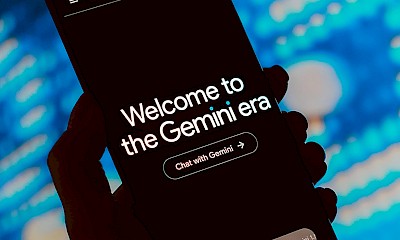
Which search engine is the best?
Why this question is more important today than ever
Search engines are our gateway to the digital world - whether for information, products or news. But which search engine is the best? The answer depends on more than just market share.
Google dominates the market with over 90%, but data protection, sustainability and ethical standards are becoming increasingly important. In this article, we take a look at Google and its alternatives - from DuckDuckGo to Ecosia - and show what really matters when choosing the right search engine.

- What makes a good search engine?
- Google - market leader with downsides
- Bing - The alternative from the Microsoft universe
- DuckDuckGo - The search engine for the privacy-conscious
- Ecosia - The search engine that plants trees
- Qwant - European search engine with GDPR focus
- Swisscows - Family-friendly and safe
- Further alternatives at a glance
- AI-based search engines: A new era of search?
- DREIKON recommendation
The most important facts in brief:
Google is the market leader, but not without an alternative:
Over 90% market share - but data protection, ethics and relevance are becoming increasingly important.
Data protection wins:
Search engines such as DuckDuckGo, Startpage or Swisscows do without tracking and user profiles.
Ecological search:
Ecosia uses advertising revenue for global reforestation projects - ideal for sustainable users.
AI is changing search:
Perplexity and WolframAlpha provide direct, context-based answers instead of traditional hit lists.
Specialist search engines have an advantage:
MetaGer, Qwant, Mojeek and Yacy offer real alternatives - especially for sensitive searches.
What makes a good search engine?
Is user data stored? Is there tracking or personalized advertising?
Search engines such as DuckDuckGo, Startpage, MetaGer or Swisscows offer high standards - no profiles, no saved search histories, complete anonymity. These are important factors when deciding which search engine is the best for data-sensitive users.
A large and up-to-date index is crucial. Google dominates here, but services such as Mojeek and Yacy also rely on their own web crawlers for more independence. If you attach particular importance to comprehensive results, you should also take this into account when deciding which search engine is the best for in-depth research.
How is sorting done? Are there filter bubbles? Semantic sorting?
Swisscows (semantic), Qwant (neutral) or DuckDuckGo (non-personalized) rely on alternatives to the classic ranking.
Advertising revenue, transparency and sustainability are becoming increasingly important. Ecosia finances reforestation with clicks - a criterion that is becoming increasingly relevant in the question of "which search engine is the best".
Child-proof, sorted by topic or AI-based - depending on the target group, the range of functions is decisive.
Google - market leader with downsides
Google is by far the most frequently used search engine in the world. This is not least due to its powerful algorithms, which are based on years of data evaluation and user analysis. With a market share of over 90 %, it dominates the search engine market almost unrivaled. Its web crawlers continuously search billions of websites and ensure comprehensive indexing. The efficiency of Google's web crawlers contributes significantly to the topicality of the search index. So it's no wonder that many users think: Which search engine is the best? - Google, of course!
Advantages and disadvantages at a glance
Bing - The alternative from the Microsoft universe
As a competitor to Google, Bing is often underestimated. But anyone wondering which search engine is the best should also consider Microsoft's search service. Bing has caught up significantly in recent years. With a market share of around 3%, Bing is the second largest search engine in the world. Despite its smaller share, Bing is one of the few serious alternatives.
Advantages and disadvantages at a glance
DuckDuckGo - The search engine for the privacy-conscious
DuckDuckGo is a solution for savvy users who take privacy seriously and want to avoid tracking. For anyone wondering which search engine is the best when it comes to privacy, DuckDuckGo is one of the most convincing alternatives.
The search engine completely dispenses with personalized advertising, does not store IP addresses and offers identical, non-personalized results to every user. This is precisely why it is becoming increasingly popular in data-sensitive industries such as medicine, law and research.
Advantages and disadvantages at a glance
Ecosia - The search engine that plants trees
Those who not only want to find answers but also do good at the same time often ask themselves the question: Which search engine is the best if ecological values also count? The answer could be Ecosia - a green search engine that plants trees.
Ecosia uses its advertising revenue for worldwide reforestation projects. According to its own information, the community has already made it possible to plant over 180 million trees. Ecosia therefore offers real added value for people who want to have a positive impact on the planet with every search.
Advantages and disadvantages at a glance
Qwant - European search engine with GDPR focus
In the context of European data protection standards, many users ask themselves: Which search engine is the best when it comes to legal security and independence? Qwant - a search engine from France that positions itself as a European alternative - provides a strong answer to this question.
Qwant has its own search index and is therefore technologically independent. Instead of creating user profiles or placing personalized advertising, Qwant focuses on data protection, transparency and equal treatment. Anyone who attaches great importance to digital sovereignty will sooner or later ask themselves the question: Which search engine is the best for EU citizens, authorities and public institutions?
Advantages and disadvantages at a glance
Swisscows - Family-friendly and safe
Here, too, the question arises: Which search engine is the best if children, families or educational institutions want to surf safely? Swisscows offers an answer to this question. The Swiss search engine combines data protection with content filters and does not store any personal data at all.
With servers located exclusively in Switzerland, a focus on semantic relevance instead of personalized results and the automatic hiding of violent and erotic content, Swisscows clearly sets itself apart from traditional providers. Which search engine is the best for parents, teachers or companies with high compliance requirements? Swisscows provides many arguments.
Advantages and disadvantages at a glance
Further alternatives at a glance In addition to the special search engines mentioned, there are other providers that work in a data protection-friendly and target group-specific manner.
- Open source metasearch engine
- No creation of user profiles
- Results come from several sources, as a form of metasearch MetaGer bundles these results in a standardized display
- Particularly suitable for neutral &
- Provides anonymized Google results, but draws on the market leader's comprehensive search index
- High anonymity, no personalized advertising
- Ideal for users who appreciate Google's quality but want to protect their user data
- Despite lower market share, Startpage gains relevance due to data protection advantages
- Independent search index without reference to Google or Bing
- No tracking, no results based on advertising revenue
- Still limited hit density, but technologically exciting
- Lycos is one of the oldest search engines on the web, active since the 1990s
- In addition to web search, also offers e-mail services and a web portal
- Today with a focus on niche users and legacy user groups
- Less well known in Europe, but still online
- AI-supported search engine with a focus on direct, context-related answers
- Uses modern language models instead of classic web crawlers
- Combines web search with generative AI &
- Calculation-based answer engine
- Particularly strong in mathematics, statistics, physics &
- Searx is a meta search that obtains its results from various sources such as Google, Bing or DuckDuckGo
- The platform does not use its own web crawlers and instead relies on external data sources
- The decentralized structure enables particularly privacy-friendly use without central control
- This makes Searx one of the most flexible open source search services available.
- Peer-to-peer search engine with distributed search index
- Completely independent, but technically sophisticated
- Ideal for developers, research environments and net activists, although lacking a classic metasearch, it offers similar benefits through its decentralized infrastructure.
- Yacy uses a distributed network of nodes that collect content collaboratively
- Oscobo is a privacy-oriented search engine without securing IP addresses or user data
- No tracking, no user profiles, no personalized advertising
- Ideal for users who are looking for maximum identity protection and at the same time value ease of use

Ready for the next step?
Which search engine is the best? You may have already answered this question for yourself, but if you want to be found better yourself, we will be happy to help you.
Arrange a non-binding initial consultation now!
AI-based search engines: A new era of search?
With the advent of artificial intelligence, the question of "which search engine is the best" is posed in a completely new way. Traditional web crawlers and algorithmic indices are reaching their limits - modern AI models not only analyze websites, but also understand contexts, user intentions and language patterns.
Perplexity is one of the best-known examples: Instead of just displaying lists of hits, the platform provides direct answers, substantiated by sources. This form of search experience is changing the evaluation of which search engine is the best - because speed, relevance and contextual understanding are becoming increasingly important.
You.com and Andi also rely on AI-supported answers and should be particularly helpful for academic or creative research. Anyone who researches regularly will increasingly ask themselves: Which search engine is the best when it's no longer just about links, but about content?
Another advantage is that many of these services are data protection-friendly. They do not store any personal information and do not use tracking - a plus point for anyone who wants to rely not only on performance but also on ethics when it comes to "Which search engine is the best".
Not to forget: Market leaders such as Google also integrate AI elements. But the question remains: Which search engine is the best when the competition scores with innovative concepts?

DREIKON recommendation
If you are looking for an optimal search engine, it helps not to focus exclusively on the market leader. The question "Which search engine is the best?" cannot be answered universally, but it can be answered individually.
Our recommendation:
- Test different services specifically over a period of one to two weeks.
- Consider not only the user experience, but also aspects such as anonymity, data processing, transparency and user guidance.
- Use different search engines for different purposes - e.g. DuckDuckGo for research, Ecosia for everyday questions, Startpage for data-sensitive content and WolframAlpha is much better suited to technical or scientific topics than conventional standard search engines.
- For comprehensive searches, a metasearch is ideal for comparing content from different perspectives.
Because even in the digital space, diversity creates perspective.
Conclusion:
If you're wondering which search engine is the best, you shouldn't just rely on reach. The best search engine is not automatically the one with the highest reach or the largest advertising budget, but depends heavily on individual needs. Even market-leading providers do not always meet the specific expectations of all users. Rather, the answer to this question depends on the individual requirements and values of the users. Do you rely on the undisputed market leaders or on specialized search platforms with clear values? A high reach or a large market share does not automatically mean better quality.

You now know which search engine is the best, but are you being found?
Whether Google, DuckDuckGo or Ecosia: Choosing the right search engine is only the first step. If you want your company to be visible in a targeted way, we can support you with the right strategies.
Let's optimize your visibility together.
Arrange a non-binding initial consultation now!












